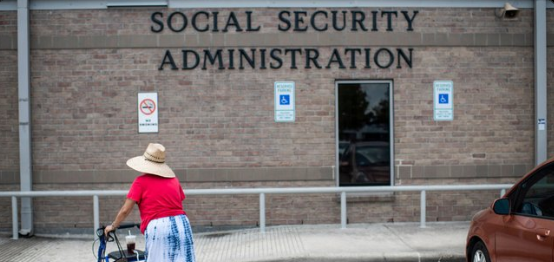Social Security recipients have been receiving significant cost-of-living adjustments (COLAs) over the past few years, thanks to record-high inflation. However, a much smaller increase is expected in the upcoming year. According to Mary Johnson, an independent analyst focused on Social Security and Medicare, beneficiaries may see only a modest 2.5% raise in 2025 based on recent inflation data.
Both analyses from @Seniors_League and retired analyst Mary Johnson predict a 2.5% cost of living adjustment.https://t.co/EUTjolPgXg
— 401k Specialist Magazine (@401kspecmag) September 11, 2024
In 2024, more than 71 million Americans, including those receiving Social Security and Supplemental Security Income (SSI), experienced a 3.2% boost in their benefits. This followed a historically high 8.7% increase in 2023, which was triggered by surging inflation and marked the largest adjustment in 40 years. In 2022, beneficiaries saw a 5.9% rise, while the increase in 2021 was a more modest 1.3%. If the predicted 2.5% COLA for 2025 holds, it would be roughly average for these types of increases, according to Johnson.
It’s important to note that this 2.5% estimate is not set in stone. The final adjustment for 2025 will be officially announced by the Social Security Administration in October, once September’s inflation data is available. Johnson estimates there’s about a 17% chance that the increase could be higher and a 13% chance it could end up lower, depending on final inflation figures.
The annual Social Security COLA is calculated using the Consumer Price Index for Urban Wage Earners and Clerical Workers (CPI-W), specifically looking at third-quarter inflation data. However, despite the rising COLAs, retirees often face financial challenges due to other factors, such as taxes on Social Security benefits and rising Medicare Part B premiums.
New “US News” post on CNBC: Social Security cost-of-living increase for 2025 could be 2.5% — the lowest since 2021, estimate finds https://t.co/Db1Ja3NtLg pic.twitter.com/p7y0bxucpY
— GlobalNewsEng (@globalnews99694) September 11, 2024
Former President Donald Trump has renewed his call to end taxes on Social Security benefits, a key point in his current campaign. Under current rules, up to 85% of Social Security benefits can be taxed, depending on a retiree’s total income, which includes adjusted gross income, half of Social Security benefits, and any nontaxable interest. If passed, Trump’s plan to eliminate these taxes would cost the federal government an estimated $1.6 to $1.8 trillion through 2035, according to the Committee for a Responsible Federal Budget. Critics argue that while eliminating the taxes might be popular among retirees, it would severely impact the Social Security and Medicare trust funds.
On the other hand, Alicia Munnell, director of the Center for Retirement Research at Boston College, suggests that reforming the tax thresholds and indexing them to inflation could be a more balanced approach, allowing for a more equitable tax structure while still ensuring the solvency of the trust funds.
This doesn’t sit right with me. Medicare part B is increasing 5.9%, to $185 per month in 2025, but the cost of living increase is going to be 2.5%, thats about $46.80 per month. Seniors & permanently disabled people deserve better than that. https://t.co/qmBdycBeus
— Harris/Walz 2024!!!! We got this!!! (@fluffigieg) September 11, 2024
Meanwhile, Medicare Part B premiums continue to rise, creating an additional financial strain on retirees. These premiums, which cover essential health services like doctor visits and outpatient care, have historically grown much faster than Social Security benefits. From 2005 to 2024, Medicare Part B premiums increased by an astonishing 109.9%, while Social Security COLAs only saw a 52.5% rise during the same period. As Johnson pointed out, this widening gap is largely because Medicare costs aren’t included in Social Security’s COLA formula, leaving retirees to shoulder increasing out-of-pocket healthcare expenses even as their benefit checks grow at a slower rate.
Major Points:
- A 2.5% Social Security COLA is projected for 2025, lower than recent years.
- The final adjustment will be confirmed in October 2024, based on updated inflation data.
- Trump’s proposal to eliminate taxes on Social Security benefits could significantly impact federal budgets.
- Medicare Part B premiums are rising faster than Social Security benefits, putting pressure on retirees.
- Suggested reforms include indexing Social Security tax thresholds to inflation for greater fairness.
RM Tomi – Reprinted with permission of Whatfinger News



